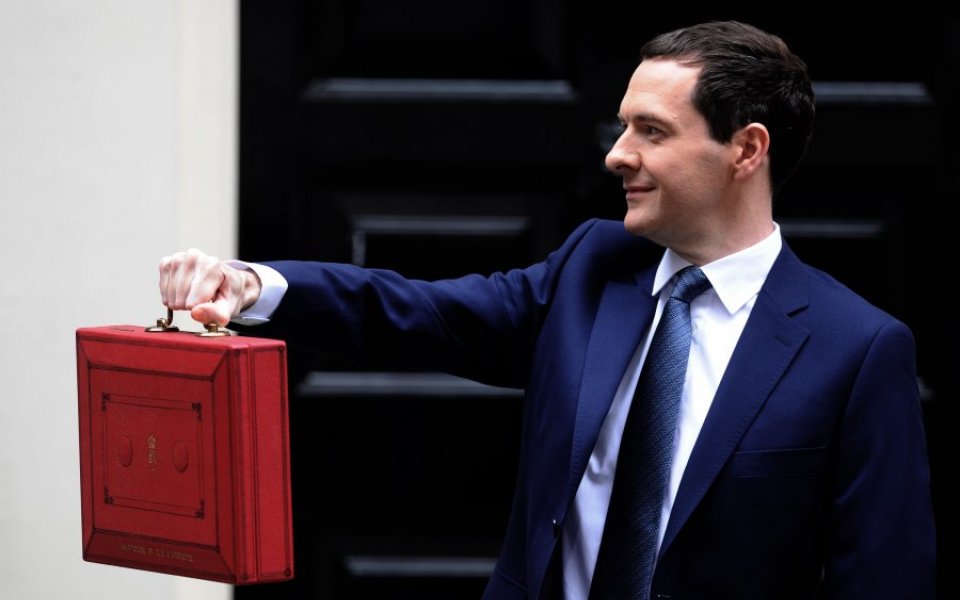Autumn Statement 2015: What do free marketeers want from chancellor George Osborne and what do they think they’ll get?

True to chancellor George Osborne’s record, tomorrow’s Autumn Statement promises to be a highly politicised event and one that has been mired by recent events including the Paris attacks, borrowing figures and controversy around cuts to tax credits, departments, services and welfare.
Forgetting the political theatre, just what do free marketeers want from this Budget?
Tax credits
Let's start with one of Osborne’s most controversial measures, “the government’s proposed tax credit changes should be abandoned”, according to the Institute of Economic Affairs (IEA). The changes significantly increase marginal tax rates for the low paid, and delaying implementation or other minor changes will not change this, they say.
What should he do instead? The IEA suggests replacing tax credits with a negative income tax based on household income with the amount of tax-free income based on tax allowances which would be transferable within households.
Read more: Umunna to Osborne: Don't cut off your nose to spite your face
The IEA isn’t alone. The Adam Smith Institute (ASI) wants working tax credit cuts reversed, or at least “mitigated significantly”. It's the money it saves isn't “terribly substantial, in the grand scheme of things”, and he'd be better off reforming tax credits and the Universal Credit itself to make it much simpler overall – along the lines of the negative income tax.
Simplification
But free marketeers want to see more reform of the wider tax system too. The Taxpayers’ Alliance (TPA) wants the chancellor to take steps towards merging income tax and national insurance, as “the link between contributions paid and benefits received is now so weak that NI is simply another tax on earning creating needless complexity and undesirable opacity”.
Beginning the “long overdue process of aligning income tax with national insurance” is incidentally the same thing the Institute of Directors (IoD) is calling for.
The IEA also hopes the Autumn Statement will make plans to simplify the tax system and make it more “economically rational”. In particular, personal tax thresholds should rise "by more than inflation or earnings growth in the coming years after a number of years of under-indexation”.
Deficit
The TPA is calling on the chancellor to "stick to pre-election projections and bring spending down to 36.3 per cent of GDP", while also urging him to think again on ring-fences.
Meanwhile, the IoD shares the TPA's sentiments, saying Osborne should "hold his nerve" on deficit reduction, with 85 per cent of its members supporting the plan to run a budget surplus by the end of this parliament.
The IEA says that the government should completely rethink its approach to closing the deficit. Every area of spending "should come under the microscope".
Spending
On the spending side, the TPA are hoping Quangos will be cut. There are currently over 400 organisations that the government could look at disbanding in order to make efficiency savings such as removing unnecessary functions and duplication of back-office operations. There needs to be another review, this time with a tougher criteria than the last attempt.
Meanwhile, the IEA wants capital spending decisions to prioritise projects with the highest economic return, and take account of the long-term effects of ageing on health and pensions spending.
Decentralisation
The IEA wants the government to be more “ambitious” in its fiscal decentralisation agenda. “Revenue raising and regulation should be devolved to all local authorities”, it said.
Will there be great change?
Alas, “the government’s spending review will be far from comprehensive”, says the IEA. With the triple lock for state pension increases and NHS, per-pupil funding for schools, international aid and the defence budget all protected, “the overwhelming majority of government spending has been ring-fenced from cuts”.
Read more: MPs pressure Osborne to delay tax credit cuts
And for the ASI, “there isn't expected to be anything major that's new – it would be a bit odd to add anything major after doing a proper budget four months earlier.”
The best outcome for the ASI would be the chancellor announcing that he'll scrap the Autumn Statement itself. “It's just political theatre, and we got by well enough without it before Brown turned it into what it is today.”